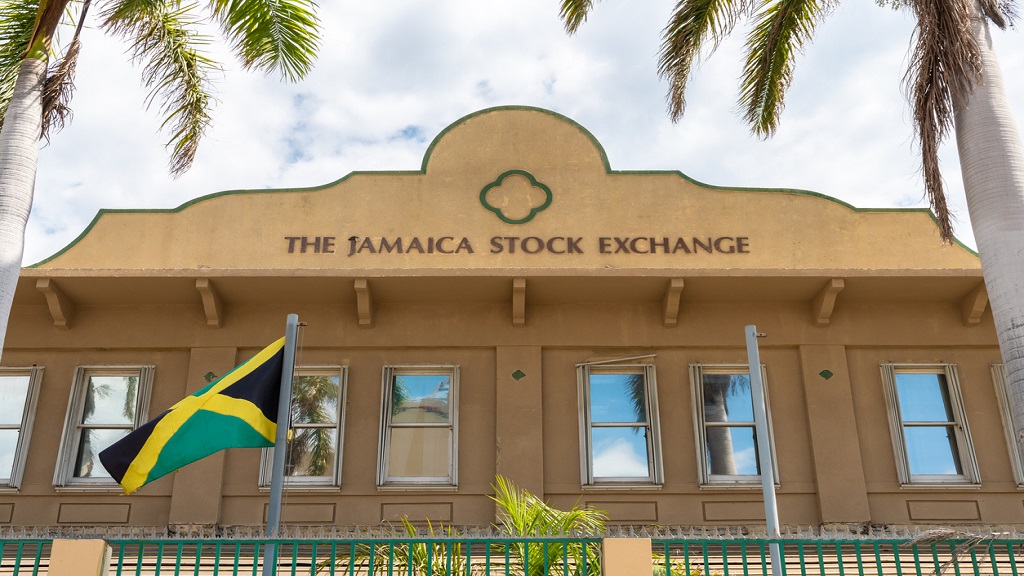

Last week, there was much consternation as NCB Financial Group’s share price sank as low as J$32.
It must have been unsettling for the management team, staff and shareholders.
The share price has fallen from a high of J$210 in 2019 and for the best part of the last month has hovered in the $40 range.
Then came a number of damning articles from Trinidad, which caused panic. Is Michael Lee-Chin still able to maintain control of NCB? Is NCB in a position to raise US$300 million on the international capital markets? Why is NCB in such turmoil?
Plenty gloated, some gleefully awaited the coup de grace.
Then came the news that NCB’s share price had sunk to as low as $32 when it was hovering above J$40 a few days ago. Some said it was a good time to buy, others said it could lead to a run on the bank and shake confidence in the country’s largest financial institution.
Jamaica Stock Exchange-listed companies’ fortunes are not as determined as other bourses are by “historicals” and other pertinent information. The volumes traded are invariably low, and activity is characterised as “illiquid.” It is easy for one person to come in and move the market substantially with individual trading activity.
The liquidity of the JSE has long concerned former group CEO of Grace Kennedy, Don Wehby, and he sees it as a shortcoming of Caribbean exchanges.
“Liquidity is still a big issue for the JSE. The delisting (of GraceKennedy)from the BSE has nothing to do with Barbados or its economy. It more has to do with the liquidity of the various exchanges in the Caribbean.
“For over 15 years now, I have been calling for one Caribbean stock exchange because I believe it can increase the market capitalisation of all listed companies in the Caribbean. What we found in Barbados was the liquidity was very low, and it did not make sense to continue to list.

“The fundamental problem we have in the Caribbean is that markets are too fragmented. I believe the way to go is to have one stock exchange, the Caribbean Stock Exchange, where all companies are listed. This will attract new investments and create a deeper market with the liquidity being there.”
This year has not been a good one for Jamaican equities, and investors have been taking hits. It is heartening to see more young people looking to grow wealth via the stock market. It bodes well for the future.
With NCB under siege and detractors quick to talk about its vulnerabilities, the journalist David Rose decided to trade NCB stock, and brought the price down with just two shares. His trading activity triggered the circuit breaker, which saw the stock plummet to J$32.
He traded a total of 60 shares (Playing around with the equivalent US$15) and came out on the losing end.
Taking to social media, the currency determiner of millennials and Gen Zs, David Rose wrote after his trading in NCB shares: “A stone was flung with no target, yet a hog sealed. Tons of people worried about that company and the associated owner debt, but it’s too late at this point.
“We’re all spectators at this point. Nothing those folks can do to drum up support to save their numbers.”

Another post read: “Unsustainable debt is toxic when liquidity pulls back, and everyone is feeling the pressure of a weaker economic environment. The pre-JDX business models don’t work anymore and cheap money isn’t there as a last resort.
“Fun times ahead.”
Who could David Rose be talking about? His words conjure a fait accompli.
Perhaps he was irked by his trading activity not yielding a fortune, but he hardly could have expected more than the cost of two KFC Big Deal meals.
Perhaps David Rose’s trading activity and its impact on NCB’s share price were merely a simple twist of fate. Maybe he was unaware that he would be NCB’s succubus.
On news that NCB’s share price was driven down by David Rose’s trading activity, this writer dismissed it as far-fetched. Those invested in equities trade, and some do so just for fun. David Rose would know what he was doing and no doubt supplements his income by putting his knowledge to work—hardly a crime.
But then a senior executive at Jamaica Broilers reached out and said they experienced something similar with a trader also called “David Rose.”
Really? So what took place?
As at December 31 2024, a David Rose had 1 JBG share. Since January 1, 2025 that David Rose bought 16,048 shares and sold 16,048 shares using three accounts. The gain on the trading was $22,956.42. He would have one share as of today. There have been 11 trades of 1 share by David Rose as of January 1, 2025.
Only last month in the Jamaica Observer, David Rose, who is reputed to be its best business writer, penned an article entitled ‘Jamaica Broilers expansion dream turns sour as US operations bleed cash’.
The opening paragraph read: “Jamaica Broilers Group Limited shares tumbled over four per cent on Tuesday, wiping out $1.51 billion (US$9.4 million) in market value as investors reacted to the latest update on its USA operations, which will have a material impact on the group’s financials.”
He later brings to readers’ attention: “JBG has a $1.5 billion unsecured bond listed on the JSE Private Market maturing April 2028, and a $2 billion unsecured bond maturing January 2027. The restatement of the group’s financials could affect the covenants related to different debt instruments.
“JBG’s share price closed Tuesday at $27.24, which left it down 24 per cent in 2025 with a market capitalisation of $32.67 billion. Jamaica Broilers did not consider a semi-annual dividend after the release of the third-quarter report. JBG’s 2025 financial year ended May 3 based on its non-conventional financial year.”
The information that David Rose provides can materially shape the fortunes of big listed companies in Jamaica, but he is also looking to benefit from his trading activities, which is somewhat worrisome.

This can have an adverse effect on share price and this is coming to light.
By no means am I saying that David Rose is a mendacious stock manipulator, but a pattern is emerging where his activities are the kiss of death to companies.
Stock manipulation is the act of intentionally interfering with the free and fair operation of the market to create an artificial price for a security.
This is usually done to benefit the manipulator at the expense of other investors.
It’s not a mistake or an accident; it’s a deliberate attempt to deceive other market participants.
Then there is what Freddy Kaplan refers to as ‘bear raid’, where one spreads negative rumours and information to drive down the price of a stock.
NCB would be forgiven for thinking this is the case here.
NCB’s unaudited financial results for the six months ended March 31, 2025, saw it report a consolidated net profit of J$22.2 billion, a 108 per cent increase compared to the same period last year. The March 2025 quarter saw a significant improvement. NCB has strengthened its equity position, put in place a new board and a new management team. It has returned to paying regular dividends.
One would suspect this would ensure an uptick in its share price and augurs well for confidence reposed in NCB. Instead, the share price is an anomaly, and confidence is evaporating. Why?
Both the government and the JSE must see to it that a clear distinction is made between the work of a reporter and the utterances of a shareholder, and that should never be co-mingled, as to invite malcontent and accusations. There should be no suspicion that something far more sinister is at play and that bad actors are yet to show their hand.
September 20, 2023, David Rose was the subject of peculiar trading activity when executives at one of Jamaica’s leading brokerages noted that its price on the final trading day was in the $80s with bids in the queue at that price yet somehow a “David Rose” traded the stock at $70 selling it one second to close.
“This was very unusual and obviously not done to make money, yet intentional. This action pushed the stock price down. In NCB’s case, it appears to be happening again,” said the investment house executives.
There’s nothing scandalous about being a gifted trader able to find ways to make money. That happens all over the world, even by young fellas in their bedrooms.
It should never be said that machinations were employed to drive down the price of stock.

David Rose has to be very careful with what he says and subsequently does trading shares. His activities are being noted. Again, this is not an article pointing an accusatory finger at the reporter or an effort to besmirch his reputation, but rather a caution—be more careful and be fully aware that actions have consequences.
Making money by trading on the JSE is not a crime, nor is it reprehensible. You don’t want to engage in activities that may be deemed suspicious or cause listed companies to lose so much market value.
David Rose has said that NCB is no longer in the J$100 billion market cap club, to which an investor quipped, “He caused that.” You want to avoid that kind of thing because it questions your credibility.
As both a reporter and an investor, clear lines must be drawn. If you turn up at AGMs and quarterly briefings, are you there asking questions as a reporter or are you speaking as a registered shareholder? There should be no room for doubt.
As it stands, David Rose’s trades make little sense, but they have caused insurmountable damage and not just to NCB.







Comments